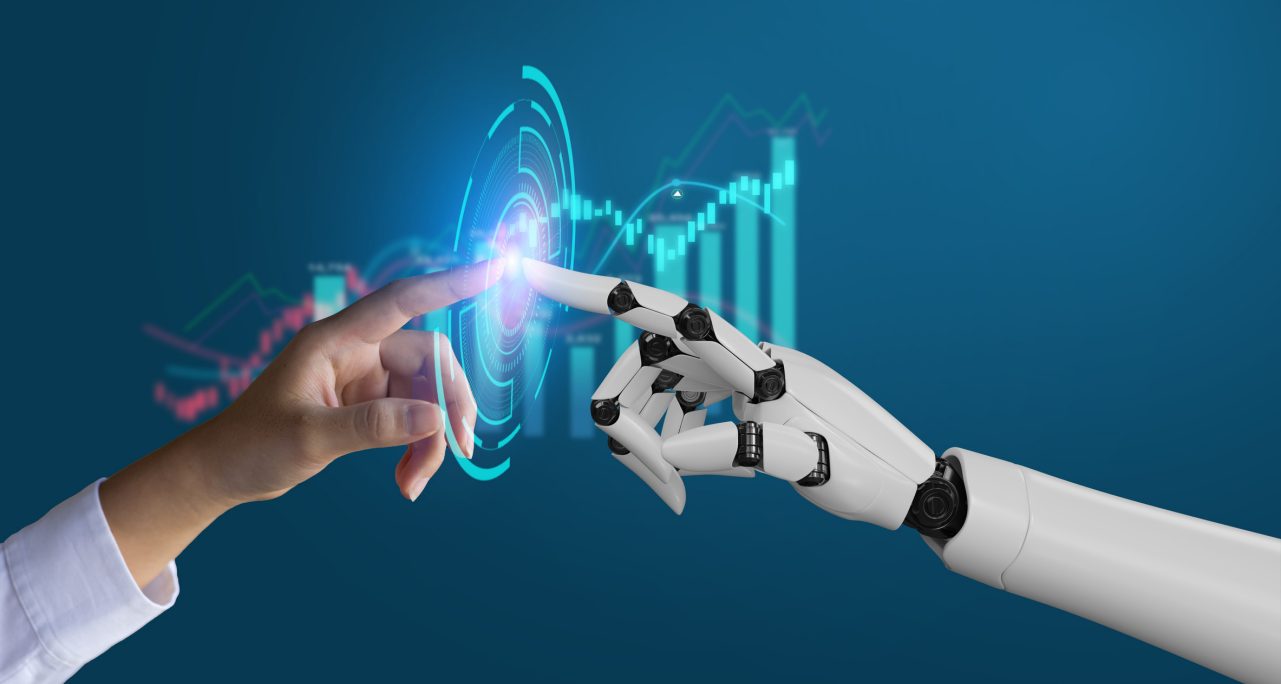Understanding AI Workers
Definition of AI Workers
When I think about AI workers, I picture intelligent systems designed to automate tasks, assist humans, or process data efficiently. These technological marvels aren’t just robots; they include software algorithms and machine learning systems that learn and adapt over time. In essence, AI workers are any digital tool or system that can operate independently or semi-independently to improve productivity and efficiency.
Role of AI Workers in Various Industries
AI workers have found their place across many industries, transforming the way we work. Here are a few examples that stand out to me:
- Customer Service: Many companies now employ chatbots to handle customer inquiries, providing instant responses that enhance user experience.
- Manufacturing: Autonomous robots on assembly lines increase production speed while minimizing human error.
- Healthcare: AI programs assist in diagnosing diseases, allowing healthcare professionals to make quicker and more accurate decisions.
By integrating AI workers, businesses can not only enhance operational efficiency but also free up human workers to focus on more creative and strategic tasks.
Types of AI Workers
Virtual Assistants
Virtual assistants have become my go-to for managing daily tasks. These AI-powered tools help schedule appointments, set reminders, and even send emails. They learn preferences over time, making them incredibly efficient. For example, using a virtual assistant like Siri or Google Assistant can save me minutes each day—minutes that add up!
Chatbots
Chatbots are another popular type of AI worker, transforming customer interaction. I’ve often encountered chatbots on websites while seeking support. They provide instant replies and can handle multiple inquiries simultaneously. Their ability to answer FAQs helps companies manage high volumes of queries without a hitch. Here’s what I appreciate about chatbots:
- 24/7 Availability: They never sleep, ensuring customers can always get assistance.
- Cost-Effective: Businesses save money on staffing while still offering support.
Autonomous Robots
Lastly, autonomous robots are revolutionizing fields like manufacturing and logistics. I once saw a video of a warehouse robot autonomously moving products from one location to another. It was astonishing! These AI workers increase efficiency, reduce labor costs, and minimize human errors, leading to smoother operations. They’re a glimpse into the future of automated industries. Each type of AI worker plays a crucial role in maximizing efficiency and driving innovation across various fields.
Benefits of Using AI Workers
Efficiency and Productivity
Transitioning to AI workers has significantly boosted efficiency and productivity in various sectors. I’ve noticed that in my own work routine, integrating tools like virtual assistants allows me to focus on more strategic tasks while they handle mundane details. The result? Projects get completed faster! Here’s how:
- Task Automation: Routine tasks are automated, allowing more time for creative thinking.
- Consistent Performance: AI workers don’t experience fatigue like humans, ensuring reliable output.
Ahorro de costes
Cost savings is another major benefit. Businesses can reduce overhead by utilizing AI workers instead of hiring additional staff. For instance, many companies have turned to chatbots for customer service inquiries, drastically cutting labor costs while still providing quality support. Here are some key points to consider:
- Reduced Labor Costs: Fewer employees needed for basic tasks.
- Lower Training Expenses: AI systems can be programmed and updated without extensive training.
Improved Accuracy
Lastly, AI workers also bring improved accuracy to many processes. I’ve seen firsthand how utilizing AI algorithms in data analysis minimizes errors that might occur with manual entry. Some advantages include:
- Data Handling: AI can analyze vast amounts of data without human error.
- Predictive Analytics: Enhanced decision-making based on accurate predictions.
Incorporating AI workers indeed provides significant benefits that not only streamline operations but also enable growth and innovation across industries.
Challenges Faced by AI Workers
Lack of Emotional Intelligence
While AI workers bring many benefits, they also come with notable challenges. One significant drawback is their lack of emotional intelligence. During my interactions with chatbots, I’ve sometimes felt that they miss the nuances in human communication. They can’t truly understand emotions or empathy, which can lead to frustrations in customer service or sensitive areas like healthcare. This might result in:
- Misunderstood Queries: Errors in interpreting customer needs.
- Inadequate Support: Limited ability to provide emotional comfort.
Potential Job Displacement
Another pressing concern is the potential for job displacement. As AI workers increasingly handle repetitive tasks, some worry about their roles becoming redundant. I’ve heard stories from friends in various industries who are anxious about their job security as automation rises. Key points to consider include:
- Reallocation of Roles: Workers might need to reskill or upskill for new roles.
- Economic Impact: Regions reliant on manufacturing could face disruptions.
Ethical Considerations
Finally, there are ethical considerations surrounding the use of AI workers. I often wonder about data privacy when AI collects and analyzes information. Ensuring ethical standards is crucial to maintaining trust, particularly as we navigate the complexities of AI in decision-making processes. Important aspects are:
- Data Security: Protection against data breaches and misuse.
- Bias in Algorithms: Ensuring AI doesn’t perpetuate existing biases in society.
As we embrace the potential of AI workers, it’s essential to address these challenges thoughtfully to harness their benefits responsibly.
Real-Life Applications of AI Workers
Customer Service
Despite the challenges, AI workers are transforming the customer service landscape in impressive ways. I’ve experienced the convenience of chatbots that can resolve inquiries at any hour. They handle tasks like processing orders and offering support swiftly. Key benefits include:
- Instant Responses: Customers receive immediate answers, enhancing satisfaction.
- 24/7 Availability: Support is always accessible, providing peace of mind for users.
Fabricación
In manufacturing, AI workers are optimizing production processes significantly. The first time I saw an autonomous robot efficiently assembling products, I was amazed! These robots help increase speed while reducing human error. Important points to remember are:
- Increased Productivity: Robots can work tirelessly without breaks.
- Precision: AI minimizes defects, leading to higher-quality products.
Sanidad
Healthcare also benefits greatly from AI workers. The use of AI in diagnostics has been a game changer for medical professionals. I recall hearing about an AI system that can analyze X-rays more accurately than a seasoned radiologist. Here’s how it impacts the field:
- Faster Diagnostics: AI can process medical images and provide instant results.
- Resource Allocation: It allows healthcare staff to focus on patient care rather than administrative tasks.
These real-life applications vividly illustrate how AI workers are enhancing efficiency and transforming industries, making our lives easier and more productive.
Future Implications and Opportunities
Growth of AI Worker Market
Looking ahead, the growth of the AI worker market is nothing short of thrilling. As I’ve kept an eye on the advancements, I’m often reminded of how quickly technology evolves. The demand for AI workers is expected to surge as businesses seek greater efficiency and productivity. Key observations include:
- Increased Investment: Companies are pouring resources into developing AI solutions.
- Diversification: New AI worker roles are emerging across various industries, from finance to agriculture.
Potential Developments in AI Worker Technology
The future holds plenty of potential developments in AI worker technology. I’m particularly excited about improvements in natural language processing. Enhanced communication abilities would make interactions with AI far more seamless. Other anticipated advancements are:
- Greater Emotional Intelligence: Future AI systems may better understand and respond to human emotions.
- Integration with IoT: AI workers could become even more efficient as they interface with smart devices in homes and workplaces.
The implications of these developments could revolutionize how we interact with technology and leverage AI in our daily lives, opening up new opportunities that are currently hard to imagine.
Conclusion and Final Thoughts
Recap of AI Worker Impact
As we wrap up, it’s clear that AI workers are making a profound impact across various industries. From enhancing customer service to revolutionizing manufacturing and healthcare, these technologies are reshaping our world. I’ve personally felt the conveniences they bring, whether it’s through faster service or increased accuracy in tasks. Some key takeaways include:
- Efficiency Gains: AI workers streamline operations, allowing for faster project completions.
- Job Transformation: While they might displace some roles, they also create opportunities for new jobs that require different skills.
Closing Remarks
In closing, embracing AI workers isn’t just about technology—it’s about looking at the opportunities that lie ahead. While we must navigate the challenges related to emotional intelligence and ethical considerations, the potential benefits far outweigh the obstacles. As we continue to innovate, I’m excited to see how AI will further enhance our lives and workplaces, ultimately leading to a smarter and more efficient future.













